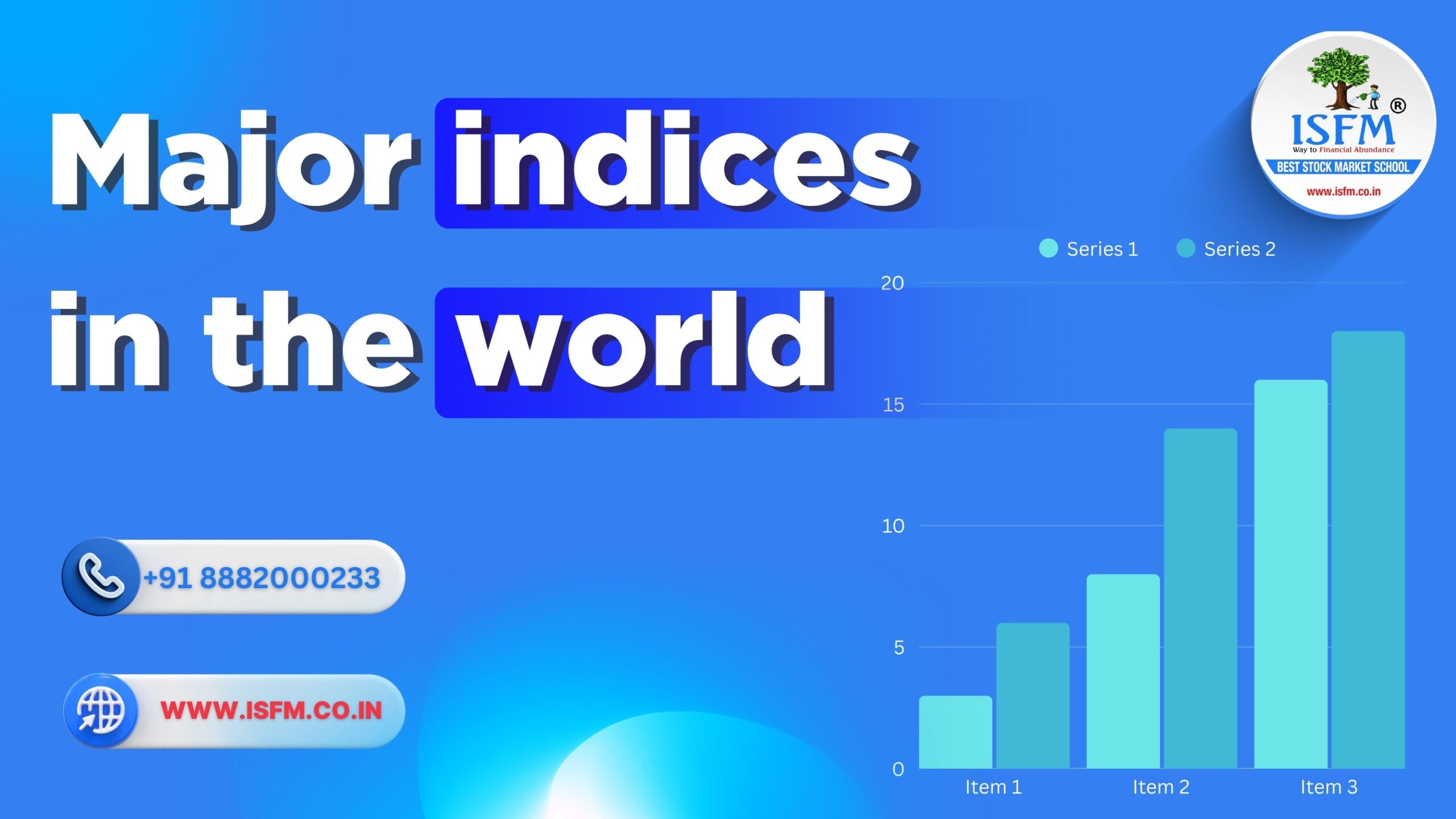Top 10 Global Stock Indices: Features, Significance & Market Impact

Global stock market indices serve as essential indicators of economic performance and investment sentiment. They not only reflect the health of financial markets but also guide investors, shape fund strategies, and influence policy decisions. In this article, we explore the top 10 global stock indices, highlighting their key characteristics, why they matter, and how they benefit market participants.
1. S&P 500 Index – United States
Key Highlights:
- Covers 500 of the largest publicly traded companies in the U.S.
- Market-cap weighted and diversified across multiple sectors.
- Managed by S&P Dow Jones Indices.
Why It Matters:
- Represents approximately 80% of total U.S. market capitalization.
- A core benchmark for ETFs like SPDR S&P 500 ETF (SPY).
2. Dow Jones Industrial Average (DJIA) – United States
Key Highlights:
- Comprises 30 blue-chip companies.
- Price-weighted and includes established firms like Apple and Coca-Cola.
Why It Matters:
- One of the oldest indices, tracking the industrial core of the U.S. economy.
- Offers insight into mature, stable business trends.
3. NASDAQ Composite – United States
Key Highlights:
- Includes over 3,000 tech-driven and growth-oriented companies.
- Dominated by giants like Amazon and Microsoft.
Why It Matters:
- A primary gauge for global tech sector performance.
- Popular among innovation and growth-focused investors.
4. FTSE 100 Index – United Kingdom
Key Highlights:
- Tracks the 100 largest companies on the London Stock Exchange.
- Heavily weighted in energy and financial sectors.
Why It Matters:
- A bellwether for UK and global commodity-linked stocks.
- Tracked by ETFs like iShares Core FTSE 100 UCITS ETF.
5. DAX Index – Germany
Key Highlights:
- Performance-based index of 40 major German companies listed in Frankfurt.
- Includes industrial leaders such as Siemens and Volkswagen.
Why It Matters:
- Reflects the strength of Europe’s largest economy.
- Essential for those seeking exposure to EU industrial sectors.
6. Nikkei 225 – Japan
Key Highlights:
- Price-weighted index of 225 major companies listed on the Tokyo Stock Exchange.
- Includes major exporters like Toyota and Sony.
Why It Matters:
- A primary benchmark for Japan’s equity market and Asian financial sentiment.
- Impacted by the yen and Bank of Japan policies.
7. Hang Seng Index – Hong Kong
Key Highlights:
- Tracks over 80 large-cap stocks listed in Hong Kong.
- Includes sub-indices for sectors like finance, property, and tech.
Why It Matters:
- A vital link to Chinese markets and Asian economic activity.
- Features key players such as Tencent and HSBC.
8. Shanghai Composite Index – China
Key Highlights:
- Tracks all A-shares and B-shares on the Shanghai Stock Exchange.
- Influenced by retail investors and government policies.
Why It Matters:
- Reflects China’s economic direction and regulatory climate.
- Known for volatility and policy-driven momentum.
9. CAC 40 Index – France
Key Highlights:
- Comprises 40 leading French companies like LVMH and TotalEnergies.
- Traded on Euronext Paris.
Why It Matters:
- A snapshot of Eurozone’s consumer and industrial trends.
- Used heavily in derivatives markets and institutional investing.
10. S&P BSE Sensex – India
Key Highlights:
- Consists of 30 top-performing companies listed on the Bombay Stock Exchange.
- Includes market leaders like Reliance Industries and Infosys.
Why It Matters:
- India’s most prominent stock index, reflecting economic growth.
- Tracked by funds like Nippon India Sensex ETF.
Why Are Stock Indices Crucial for Investors?
- Economic Insight – Offer a real-time view of national and sectoral economies.
- Benchmark Tools – Help compare fund performance against market standards.
- Investment Vehicles – Underlie ETFs, mutual funds, and derivatives.
- Portfolio Diversification – Enable risk-spreading across industries and regions.
- Market Sentiment – Reveal investor confidence and expectations.
Also Read: What is Bankex? Exploring Its Features, Benefits, Future Scope & Profit Strategies
Who Benefits from Stock Indices?
- Retail Investors: Use index funds and ETFs to access diversified investments.
- Day Traders: Trade index futures and spot volatility.
- Financial Analysts: Utilize index movements for macroeconomic analysis.
- Corporates: Listed firms gain visibility, credibility, and capital access.
Conclusion
From the tech-driven NASDAQ to the emerging market strength of Sensex, global indices offer vital insights into market dynamics. They not only empower individual investors but also shape the strategies of institutions worldwide. By understanding these benchmarks, you gain the knowledge to navigate the world of investing with greater confidence.


